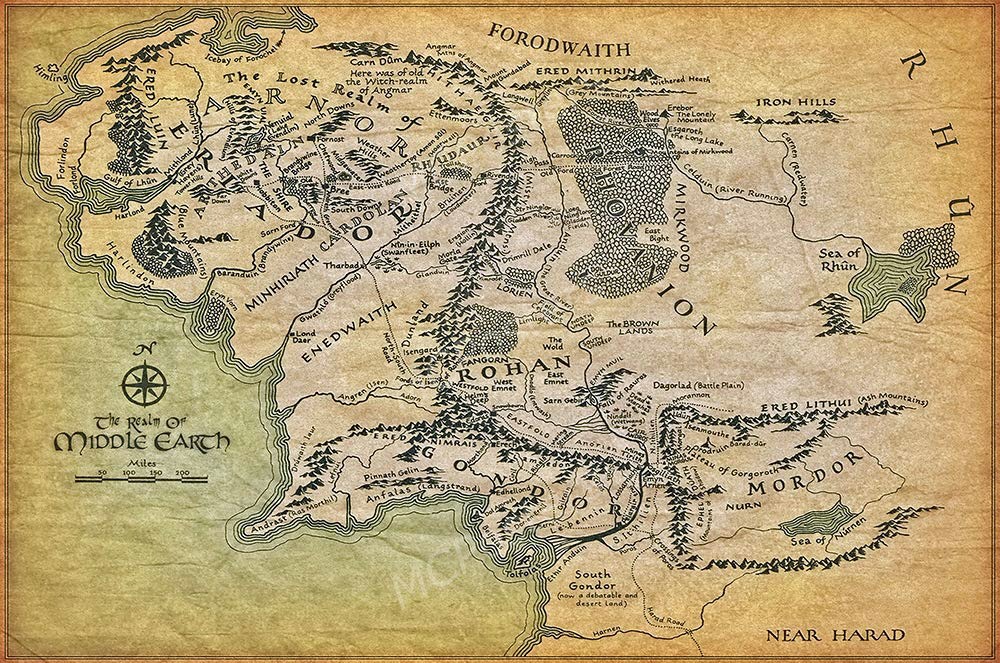
I really love a good biography. And I am fond of history in its various forms. In the more than half dozen book cases at The Bachelor Palace you’ll find tomes on a variety of subjects, from statesmen like Abraham Lincoln, George Washington, LBJ, and both Presidents Roosevelt, to entertainers like Frank Sinatra, Charles Schultz, and Evel Knievel, to explorations of things like The Civil War, Titanic, olive oil, and philosophy. Then of course there is my love of sports, which explains the shelf entirely dedicated to Roberto Clemente, Jerry West, all things Pittsburgh Steelers, and a strange fascination with golf…among other things. But sometimes one just needs to escape into a whole other world, to ride the wave of a writer’s imagination and bask in the glow of the land of make believe. No one helps a reader do that quite like John Ronald Reuel Tolkien.

It’s probably safe to say that Tolkien is most beloved for his epic Lord of the Rings trilogy, not only because it is a fantastic story but also because it received a huge revival about a decade ago in the form of a well done, hugely popular, critically acclaimed film series. However, I’m a big believer that occasionally less is more and brevity is the soul of wit. Lord of the Rings is, if I’m being quite honest, a bit of a slog. It’s kind of like a fat guy running a 10K. He may make it to the finish line, but he’ll be exhausted, hungry, hallucinatory, begging for water, and quite possibly crawling & in need of medical attention. Conversely, The Hobbit is like a lazy summer weekend spent on the front porch sipping iced tea and enjoying the gentle breeze. I’m not completely against drama & action, I just prefer it in small doses. The Hobbit has plenty of excitement, but it has it in a perfect quantity and in an easily digestible, eminently readable package.
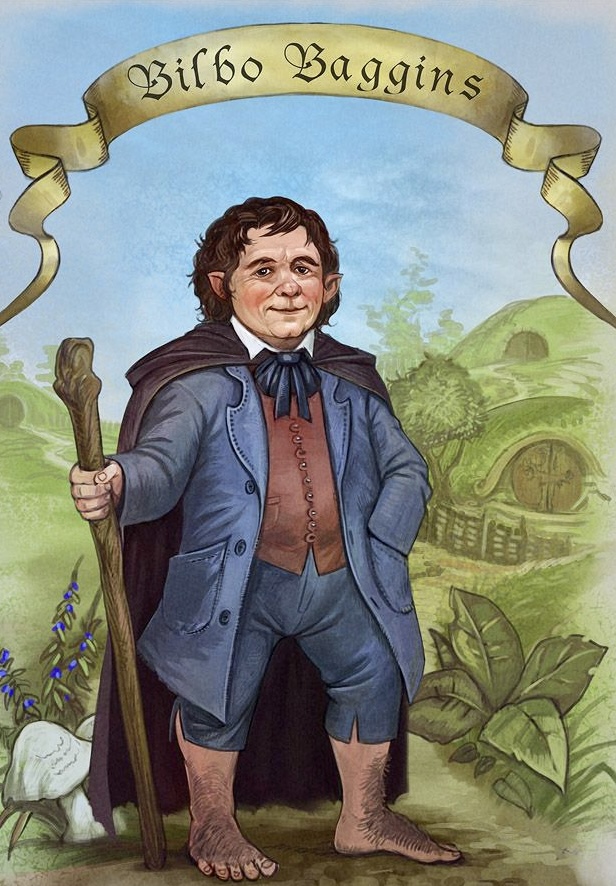
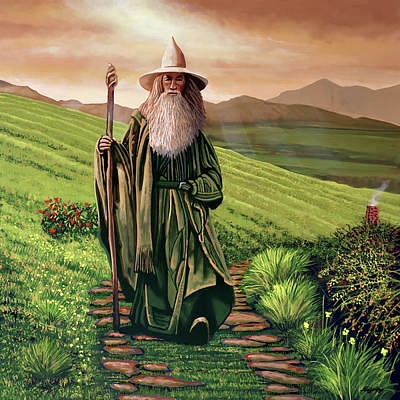
Tolkien was certainly not the first author to write about things like epic quests, hidden treasure, dragons, wizards, elves, dwarves, goblins, and trolls. However, I do believe that his works are among the best of the fantasy genre. His success has inspired generations of new writers, all of whom do their best to borrow from their guru while mixing in original elements, but it is a lofty standard very few can ever get close to reaching.

The Hobbit introduces us to Bilbo Baggins and his home village in Middle-Earth called The Shire. Hobbits are described as a diminutive race of beings that are related to Men, but are different. They are between two and four feet tall with hair covered feet, live on average 100-130 years, and prefer a conservative, leisurely, simple life of farming, eating, smoking, singing, and socializing. They reside in hobbit-holes, which are underground homes with round windows & doors found in hillsides and banks. The Shire is an idyllic, pastoral, fertile land whose inhabitants keep to themselves and don’t really worry about what goes on in the outside world. I think I would get along really well with hobbits, and I could definitely dig living in an awesome place like The Shire.
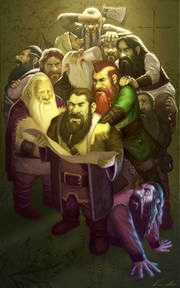
Bilbo seems to feel the same way as me, and is outwardly quite content with his uneventful little life. However, his wizard friend Gandalf the Grey apparently knows more about the adventurous spirit and valiant wisdom that lies deep within Bilbo than even Bilbo himself. Gandalf introduces Bilbo to Thoren Oakenshield & his party of dwarves who are on a quest to The Lonely Mountain to retrieve the vast treasure that was stolen from them when the evil dragon Smaug destroyed their kingdom. Somehow Bilbo gets persuaded to join this excursion. Adventure ensues. Along the way the group encounters goblins, trolls, wolves, and giant spiders. And Bilbo stumbles upon a certain magic ring that we’ll learn much more about later.
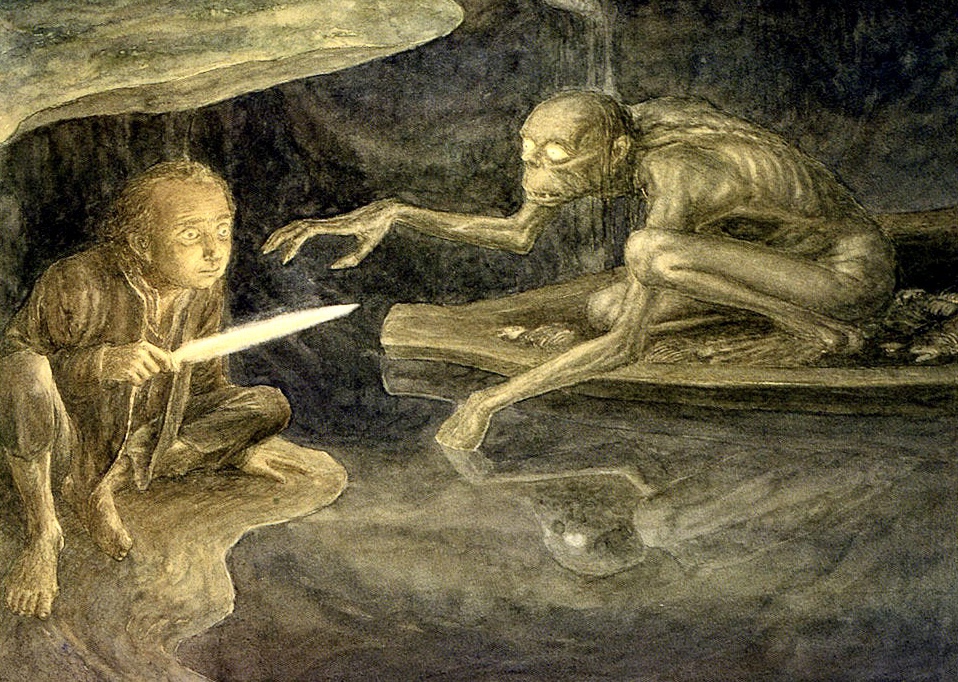
Tolkien not only manages to create fascinating characters, but he places them in a world that is just familiar enough to be comfortable yet imaginatively dissimilar enough to produce the escapism readers seek. His writing is unpretentious to the point that youngsters can enjoy the stories, but charmingly lyrical enough to be appreciated by adults. It is not easy to pull off the task of writing a story that appeals to readers of all ages, but somehow Tolkien does it with aplomb. One can read The Hobbit as a pre-teen then read it again three decades later in middle age, and both experiences will be enormously gratifying.
